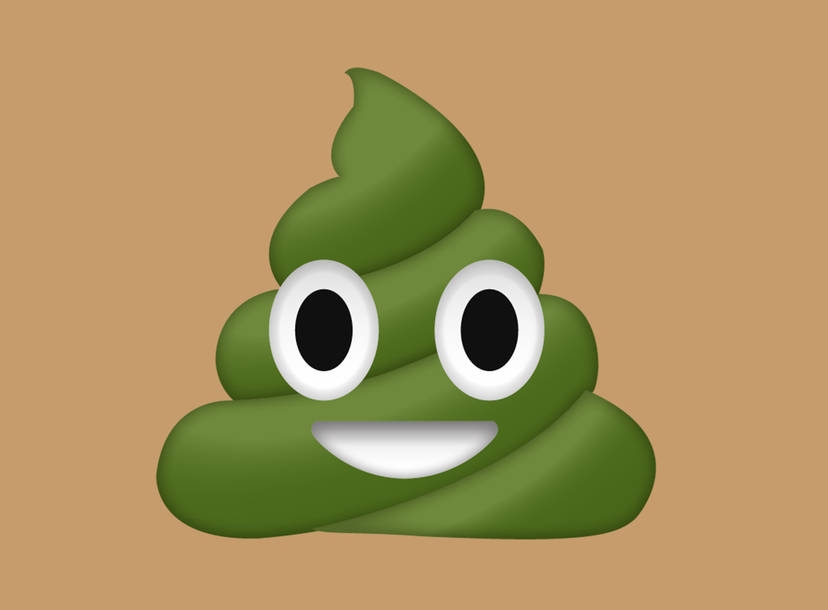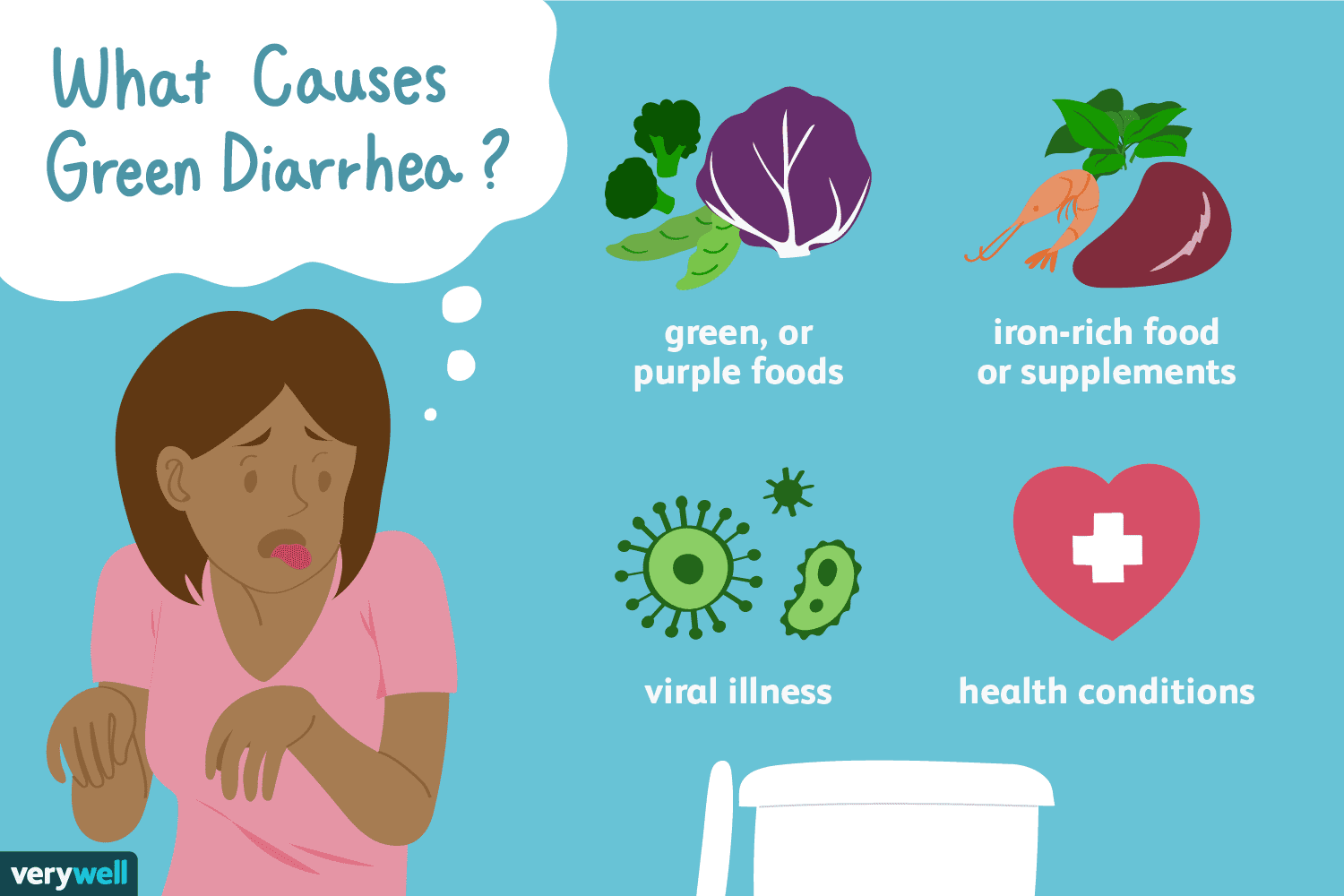Green Poop in Kids: Feasible TREATMENT at home
Poop is generally brown, but, at times, it can turn green, red, black, yellow, or anything in between. Green poop might not signal a medical condition, but some can be a sign of something more serious.
What are feasible treatments for green poop?
 |
| Photo: Thrillist |
Your poop (or "stool") is probably consistent in color if you take the time to notice. While the shade can vary from light to dark, most people's stool is brown, and doctors agree that brown is the most common color. Green poop, however, isn't always healthy, but it's certainly not a reason to panic. Stool color is determined by a variety of factors, such as diet, medications, and some gastrointestinal disorders. In most cases, green is the least abnormal color, and some even consider it to be on the spectrum of normal stool. Red, black, and white stool also warrant a visit to your physician.
How to treat green stool
In the majority of cases, green stool may indicate a slight change in the digestive system but is not a major concern.
Treatment for green poop depends on the cause. For example, if the cause of your green poop is dehydration, you should begin taking in greater amounts of fluid. If the cause is iron supplements, speak to your doctor about proper dosages. If the cause is more serious like IBS or IBD, then your doctor will put you on a specific treatment plan for these conditions.
At-home treatments
The following measures may be enough to get you through a bout of green stool.
- Keep track of what you're eating: Since dietary changes are the most common cause of green stool, keep a food diary and compare meals to stool output. In most cases, you'll experience green stool in the day or so after you've indulged in that kale salad or green smoothie.
You may also want to steer clear of artificially colored food items in the meantime to rule out if that is the cause of your green poop.
 |
| What Causes Green Poop in Babies? |
Digestion support
Supporting your digestive system through the food you eat is the simplest way to ensure your stool is a healthy brown color. The following are some tips to help you get you started.
Skip processed foods: Your body thrives when you eat food that is free of refined sugars and grains. Instead choose to eat more organic fruits and vegetables, and plenty of healthy fats. Reducing or eliminating the amount of time you snack will also help improve digestion, as you will allow your gallbladder and their digestive enzyme producing organs full release during proper meal times. You may also want to steer clear of artificially colored food items in the meantime to rule out if that is the cause of your green poop.
Sour foods: This is referring to the consumption of fermented foods such as sauerkraut, kimchi, and apple cider vinegar. When incorporated into your diet, fermented foods help to stimulate bile production, supporting digestion.
Eat fat: The consumption of fat has been labeled as an enemy for decades, but fat is actually an essential part of a healthy diet. Our brains, cell membranes, and other various tissues require adequate levels of fat from our diet to function properly. In fact, according to some sources, our gallbladders will not work optimally unless we eat at least 12 grams of fat per meal. However, like most things in life, too much of a good thing can be bad, so it is advised to eat your daily recommended intake of fat.
Bile-stimulating elixir: For some extra support, this special elixir can help stimulate the gallbladder, helping to promote the digestive process. It is recommended to mix and consume this on an empty stomach first thing in the morning, cites Belmarrahealth.
Ingredients:
- 1/4 cup of freshly squeezed lemon, grapefruit, or orange juice
- 1 tablespoon of organic olive oil
- Review your medications: Prescription labels will often indicate if changes in your stool may occur after taking a certain medication. Over-the-counter medications and natural supplements are among the most commonly overlooked offenders.
- Be patient if you're ill: Most infectious causes of stomach upset and diarrhea resolve on their own with hydration and rest. While your stool may turn green while you're ill, it will likely return to its healthy color after the illness has run its course, according to Buoyhealth.
When to see a doctor
If you experience the following, see a physician promptly. Diarrhea that does not resolve after a few days. Stool changes with severe, persistent abdominal pain. Foamy or foul-smelling stools. Other changes in stool color, including red, dark black, or very pale stool. Recent consumption of raw or undercooked food. Camping or travel abroad
When it is an emergency
Seek help right away if you have:
A very large volume of stool: Especially if it is dark black or bloodySigns of severe dehydration: Such as fast heartbeat, dizziness, or passing out.
| How to Prevent Green Poop in Infants *Avoid eating too much of green leafy vegetables, as they can cause green-coloured stools in infants. *Avoid giving cow’s milk to your baby, as it could result in green stools due to a lactose overload. *Chart your and your spouse’s medical history to avoid giving any food items that can cause an allergic reaction in your baby. *The elimination method is where your and your baby’s food intake is recorded on an everyday basis. If the child gets another attack, the parent notes down which food was eaten before. That food is discontinued for a few days and then reintroduced – if there is another allergic reaction, it is confirmed that your child is allergic to that food item. |
 | What are the Causes of Green Poop in Kids? Different colored poop may have different implications and causes. So, what are the causes of green poop? Check them out below. |
 | What is green poop disease in kids? Green poop in kids can be alarming but is usually not a cause for concern. Diet, such as eating leafy greens, often causes green poop. ... |























